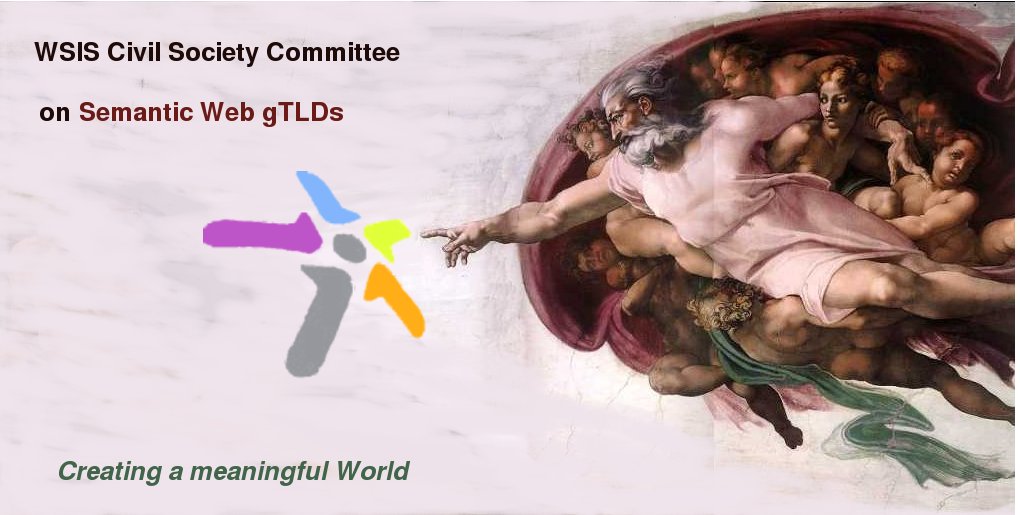|
|

INTRODUCTION
The use of the Web is now shaping what is been called the "Information Society",
to the point that a entire Summit of the United Nations, the
World Summit on the Information Society ( WSIS)
is devoted to this topic.
A specific attention has been given to
Internet Gouvernance.
The Web is currently evolving along different pathways that could be combined.
The
P2P technologies,
well known to public,
are advancing at an astounding pace,
while the much heralded Semantic Web is progressing
at a much slower rate.
Somewhat less publicized, the Digital Object Identifier (DOI) has
made important gains within the commercial scientific publishers.
-
In a very schematic way, it can be said that the
DOI
is born from the practical need to keep a permanent linkage to a ressource as the location
of the pages in a site are reconfigured and to identify this ressource, as this
ressource is mirrored or copied to other sites.
-
The
P2P is born out from the possibility to share
data, BitTorrent.
in particular allows for the possibility to share also bandwidth, so that every client
(download) is a also a server (upload) for the whole community interested by the same content.
Therefore, the P2P constitutes a technology enabling the distribution of content
by authors/creators that do no possess high bandwith servers.
An recent example of the use of
BitTorrent, in this context,
is the P2Ptelevision.net.
-
Contrary to early expectations, the use of METADATA
( such as the Dublin core ) to find ressources
on the Web has been limited by the fact that commercial referencers and pornograhers
have spoilt the METADATA in order to attract visitors and to gain
a high rank in early search engines.
Current search engines are now using raw text content, and are obliged to
use sophisticated algorithms to circumvent the dubious techniques from
some referencing companies.
XML is now more and more used to describe text data, but is less used to
index content.
The natural and logical goal of the
Semantic Web
is to transform the web into a worlwide database, in other word to
to make "machine readable" content available.
Its has been slow because of the complexity of the task when no specific XML-schema
can be enforced in each specific activity or domain. Furthermore the goal of the
Semantic Web goes beyond the interoperability
of various XML-schema and includes ontology language and proof.
WSIS/WGIG CONTEXT
Unfortunately, the report of the
Working Group on Internet Gouverance ( WGIG) to the WSIS is
very incomplete,
sometimes misleading and inacurrate.
Many crucial technical and governance issues have not been examined, for example,
issues related to HTML, XML, and the W3C are not mentionned.
The problem of the DOI has been deliberately shelved while comments have
been asking this emergent governance issue to be examined.
Technical experts have not been consulted as it should have been done.
Yet UN discussions, that could be of dramatic worldwide consequences
are currently being now held in Geneva.
In the specific context of the WSIS, there is a need to bring forwards that new ideas,
so that Web could evolve to better meet the challenge of the XXI century, both a the technical level,
and at the governance level. Both levels are intricatelly mixed.
A separation of issues has been promoted mostly by some people who
lack either technical or political or legal knowledge but it is a major mistake.
While acknowledging that technology is not what only matters,
while it is certain that the WSIS is not solely a technical summit,
it would be a mistake to go too far in that direction, and to neglect technical aspects.
The current proposal is aimed at exploring new technological advances made possible
within an innovative governance framework, the two aspects being closely inter-related.
The WSIS is a unique opportunity so that awareness can be raised to those
crucial issues.
|
|
|
WSIS Civil Society
WSIS Business Sector
MISC
|